TIPS, TRICKS & HOW-TOs
The Bendy Blog: Flexibility Training Articles
Filter posts by topic:
All Posts / Bridges / Contortion / Front Splits / General Back Flexibility / General Flexibility Tips / General Lower Body Flexibility / Middle Splits / Neurodynamics / Shoulders / Straddles / Yoga /
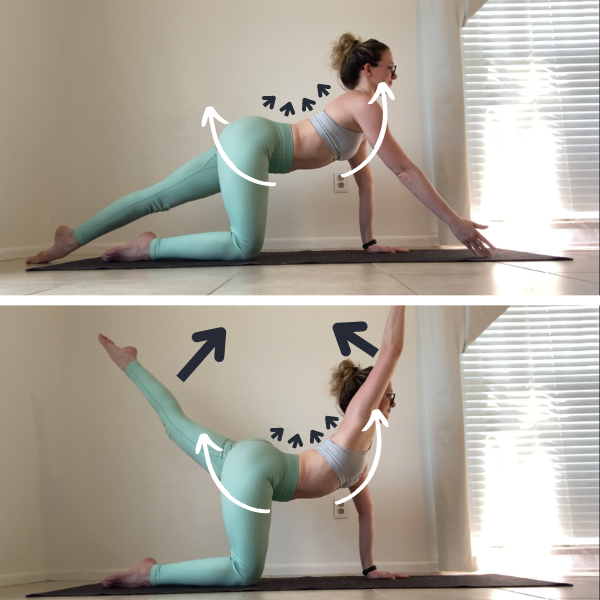
4 Bird Dog Variations for Bendier Backbends
“Bird dog” is a common flow/exercise from yoga that has been adopted by other fitness disciplines because it’s a great (and gentle) exercise for core control. Despite not looking terribly bendy (the goal is generally to keep a neutral spine), this drill can still be quite beneficial for folks looking to deepen their back flexibility. Let’s look at four different variations of Bird Dog that can help us target different areas of the backbending chain, so you can understand how to apply them all to deepen your backbending practice!

What to “Do” on Your Rest and Active Recovery Days
Not everyone likes to “take a day off” when it comes to training, whether it’s the mental challenge of feeling like you’re “not doing enough” or you feel like you need to do something every day to build/keep a habit. That’s where shifting your thinking from “do nothing” rest days to “do something” active recovery days can help! Here are some ideas for things you can do on your rest days to help treat your body and ensure it’s getting the blood flow (and rest) it needs to recover from your previous flexy workout.
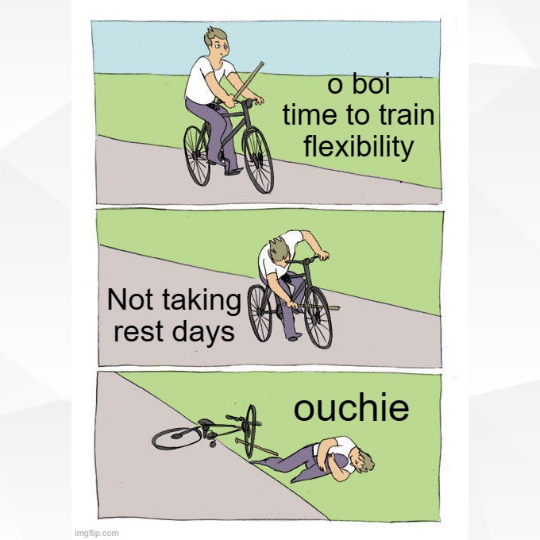
The Importance of Rest Days in Flexibility Training
While we are often tempted to DO ALL THE THINGS when it comes to flexibility training, which may mean enthusiastically stretching every day without fail - this is actually one of the least effective ways to train. Rest days are a critical part of an effective training routine - let’s take a look at why, and how to plan them into your training. You may be pleasantly surprised to see MORE progress only “training” 3-4 days a week instead of every day.
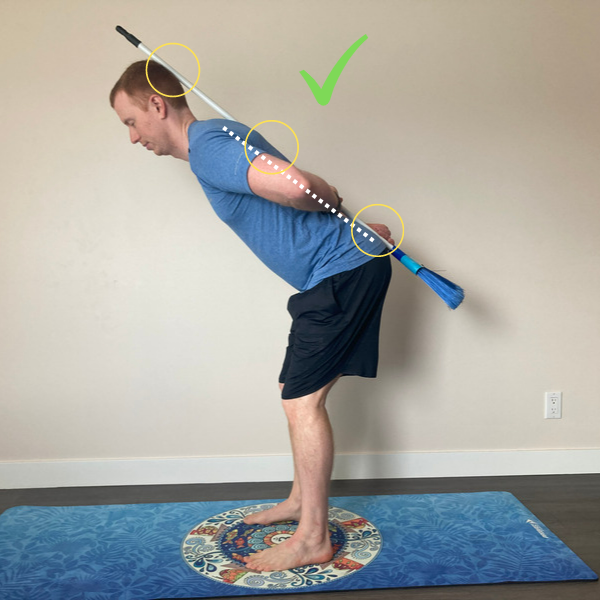
Struggling to Keep Your Back “Flat” in a Forward Fold? 5 Tips to Hinge at the Hips
Earlier this week I wrote about why you may choose to keep your back flat (instead of letting it round) in a forward fold - but for many students that’s easier said than done! Like I’ve mentioned in previous posts, our body is really good at avoiding a challenging stretch and compensating by moving other joints (in the case of a forward fold, when the hips are tight that means we tend to try and round the spine to “fold” or reach farther). So for those of you wanting to practice your forward folds with a flat back, here are some of the best modifications and training adjustments I’d suggest.

Is it OK to Round Your Back in a Forward Fold?
Do I have to keep my back flat in a forward fold, or is it OK (and safe) to round it? Like with most flexibility-related questions, the answer is “it depends.” So let’s take a look at why you’re doing your forward fold, and discuss different situations where rounding-vs-flattening your back would be a better choice for your particular goals.

Point or Flex? Protecting Your Ankles in Middle Splits
Unless you have totally flat middle splits on the floor, I strongly recommend flexing your feet, and keeping the outside edge of your foot lifted. Why? Because that mimics the most “neutral” position of your ankle, so puts the least strain on your ligaments and connective tissue (while in a relatively “heavy” bodyweight-bearing position). Let’s take a look at several foot positions in a not-yet-flat middle split so you can see for yourself…
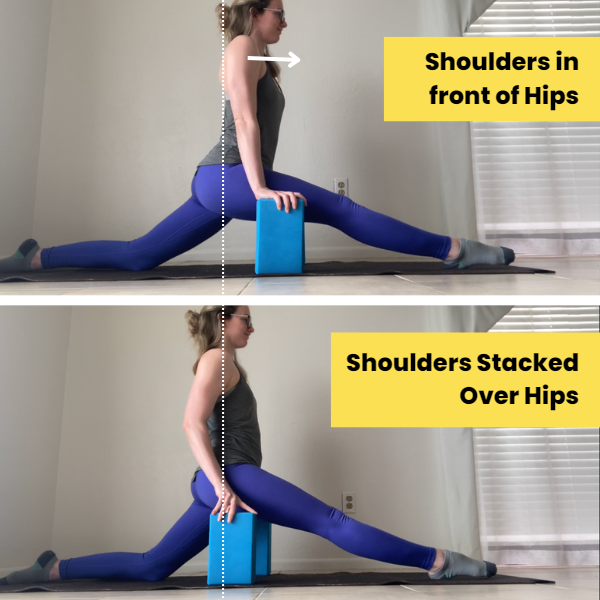
Stop Leaning Forwards in Your Front Splits!
If there’s one correction I have to give just about every leg/hip flexibility class I teach, it’s for some students to lean back a bit more in their front split (or lunge, or pigeon, or any hip flexor stretch for that matter…). Leaning forwards is SUCH a common “cheat” to avoid stretching the hip flexors in the back leg, which for most students, is a critical part of being able to get your splits flat. Let’s take a look at the anatomy of our front split to understand why you probably want to avoid leaning forwards (or in what situations that might be preferred!)
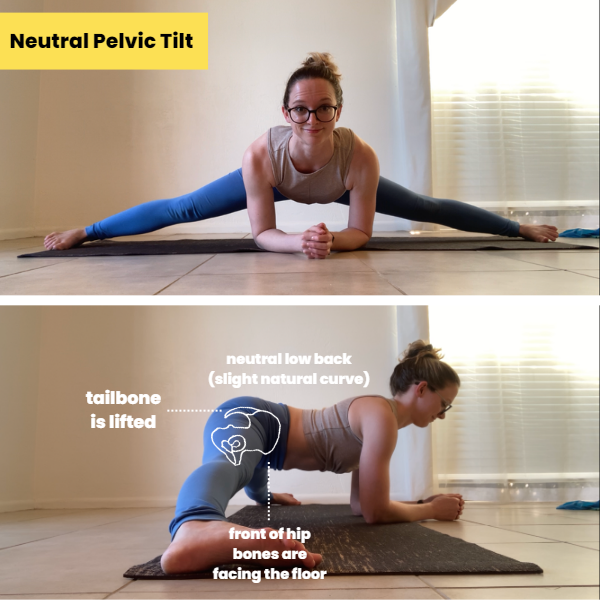
“Proper” Hip Alignment for Middle Splits
The position and orientation of our pelvis can have a big impact on the effectiveness of the stretch we’re getting in poses like middle splits or frog stretches. A couple of variables we want to consider are: hip-knee alignment, thigh rotation, pelvic tilt, and torso position. A “traditional” middle split calls for neutral hips, hip bones facing the floor, knees and thighs facing forwards, and torso parallel to the floor - but that isn’t the “only” way to do a middle split, nor is it necessarily the “best” way to do it if that doesn’t fit your hip anatomy.
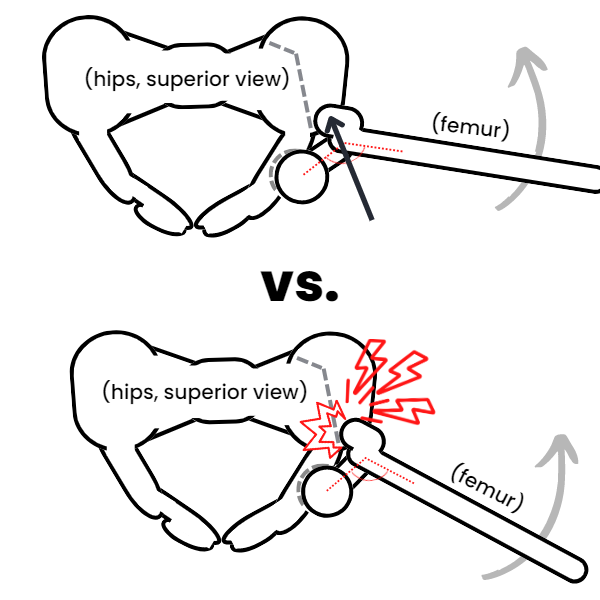
Is It Anatomically Possible for Me to Do the Middle Splits?
You may have heard that some people have a hip anatomy/structure that makes it impossible for them to ever do flat middle splits. You may have even seen a common test (spoiler alert: this “test” is crap) to show whether or not you have a boney limitation that would make middle splits impossible for you. In this post we’ll explore hip anatomy variations and their implications on our middle splits.
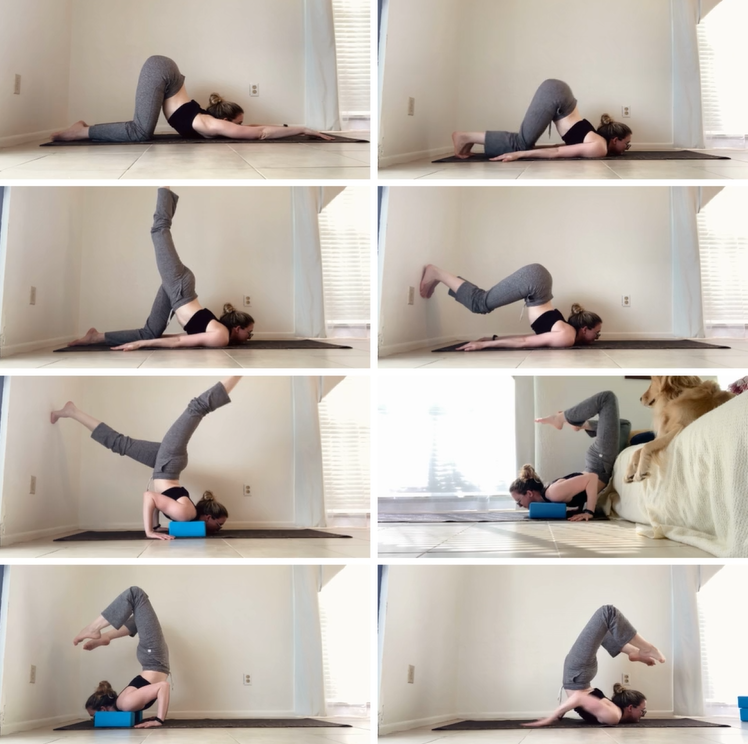
Example Chest Stand Training Progression
A chest stand is arguably the most iconic contortion pose, requiring extreme levels of back flexibility (from the neck, upper and lower back), as well as incredible core control. It’s no wonder so many students dream to be able to one day do a chest stand! In this post we’ll take a peek into what a skill progression might look like on your journey to this magical trick.
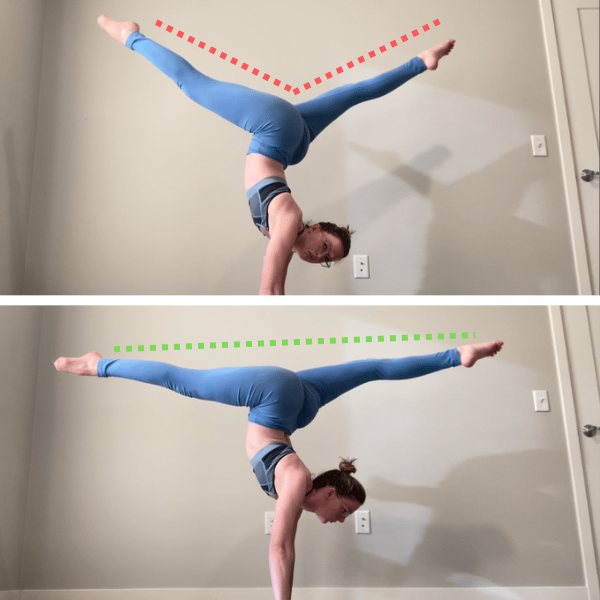
Flat Split on the Floor but Not in the Air - What Gives?
Are you working on flatter, split-ier legs in your inversions? Being able to nail a flat split in a handstand, dangling from the top bar of a lyra, or virtually any instance where your body is upside down is a major active flexibility challenge! Let’s look at some drills that can help train our active flexibility for a flatter split in the air.

Proper Pelvic Position for Hip Flexor Stretches
Our hip flexors are pretty sneaky when it comes to avoiding being stretched - watch out for these two common compensations our hips wiggle into to avoid actually stretching our hip flexors to their maximum extent.

